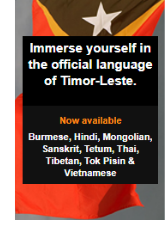The European Union has put together a long-awaited strategy on the Indo-Pacific, and its goals and initiatives are sure to have wide-ranging effects for the whole region, Chander Shekhar writes.
For a long time, the European Union has taken no official position on the Indo-Pacific. This ended, however, on 16 April, when the Council of the European Union announced a strategy for cooperation in the region.
This historic event comes amid a pandemic crisis that has caused drastic shifts in international politics. While the rest of the world is struggling to recover from COVID-19, China has successfully curbed the Delta variant, brought cases to zero, and is cautiously growing and working on its vision. China is one of few countries in the world to have grown its economy despite the COVID-19 chaos.
That said, other powers in the region haven’t just been sitting on their hands. On 12 March, the first Quadrilateral Security Framework, or ‘Quad’ summit was held, with the leaders of Australia, India, Japan, and the United States, who discussed major issues of international security.
It’s in this environment that Europe’s step into the Indo-Pacific has come.
The European Union’s Indo-Pacific strategy could signal a seismic shift from an older understanding of the Asia-Pacific to the evolving doctrine of the Indo-Pacific.
A central focus of the Council of the European Union in its ‘Strategy for Cooperation in the Indo-Pacific’ was that key word ‘cooperation’. It was used in a very comprehensive manner throughout, and includes conventional and non-conventional security measures, which it says will contribute to “development and humanitarian assistance, tackling climate change, biodiversity loss and pollution, concluding ambitious free trade agreements, and contributing to the upholding of international law including human rights and freedom of navigation”.
The goals of the strategy are to maintain the “stability, security, prosperity, and sustainable development” of the Indo-Pacific, which the Council wrote is based on the “promotion of democracy, rule of law, human rights, and international law.”
These objectives will inform Europe’s approach to the region’s many difficult problems – they will apply to the South China Sea dispute, for example.
The rising power of China is both a concern and an opportunity for the countries at the heart of this dispute, as they separately engage with China bilaterally and at ASEAN to try to forge acceptable norms in the region.
While the European Union may be unlikely to get involved in such a dispute specifically, the rising assertiveness of China in the Indo-Pacific more broadly may have been the trigger for it to step into the region. The European Union depends on maritime trade with Japan, South Korea, and Taiwan, China, Australia, and other countries for its economic prosperity, and if disputes like this escalate, that could be threatened.
The Council has also shown some care not to step on other multilateral toes with its move, acknowledging the importance of ASEAN to the stability and security in the Indo-Pacific region. The conclusions on a future strategy say that the Council “reiterates its support for ASEAN centrality and looks forward to the ambitious realization of its new EU-ASEAN Strategic Partnership”.
Still, in embracing the Indo-Pacific as a strategic doctrine, the European Union says it will attempt to work with ‘like-minded’ states in the region and reinforce ‘democratic values’ and international law, especially with respect to the sea.
In the Indian Ocean, an area of increasing security importance, the Council seems to be looking to consolidate its current strategic interest in the region.
Historically, France, Germany, the United Kingdom, and other countries in Europe have engaged with South, Southeast, and East Asian countries on various issues, but the new strategy says it will strive to develop a “coherent overall approach to the Indian Ocean” built on cooperation with key partners in both Africa and Asia.
The document is not solely focused on international jostling, however. Given the threat of climate change to marine security, the strategy also promises initiatives to tackle its effects, such as ‘green alliances’ and partnerships that will look to support the Paris Agreement and the Convention on Biological Diversity.
So, what does this mean for the policymakers of the Indo-Pacific?
T he European Union’s long-awaited strategy on the Indo-Pacific will have wide repercussions, whether they be focused on traditional security issues, aimed at advancing human rights and environmental outcomes, or even targeted at protecting maritime and marine resources from climate change.
he European Union’s long-awaited strategy on the Indo-Pacific will have wide repercussions, whether they be focused on traditional security issues, aimed at advancing human rights and environmental outcomes, or even targeted at protecting maritime and marine resources from climate change.
Policymakers should look to take opportunities to engage with this change, and take advantage of the fact Europe’s step to the Indo-Pacific has the potential to change the shape of the region into the future, both for their own countries, and the sake of the region overall.





 Europe: a new player in the Indo-Pacific
Europe: a new player in the Indo-Pacific
 The Indo-Pacific century
The Indo-Pacific century